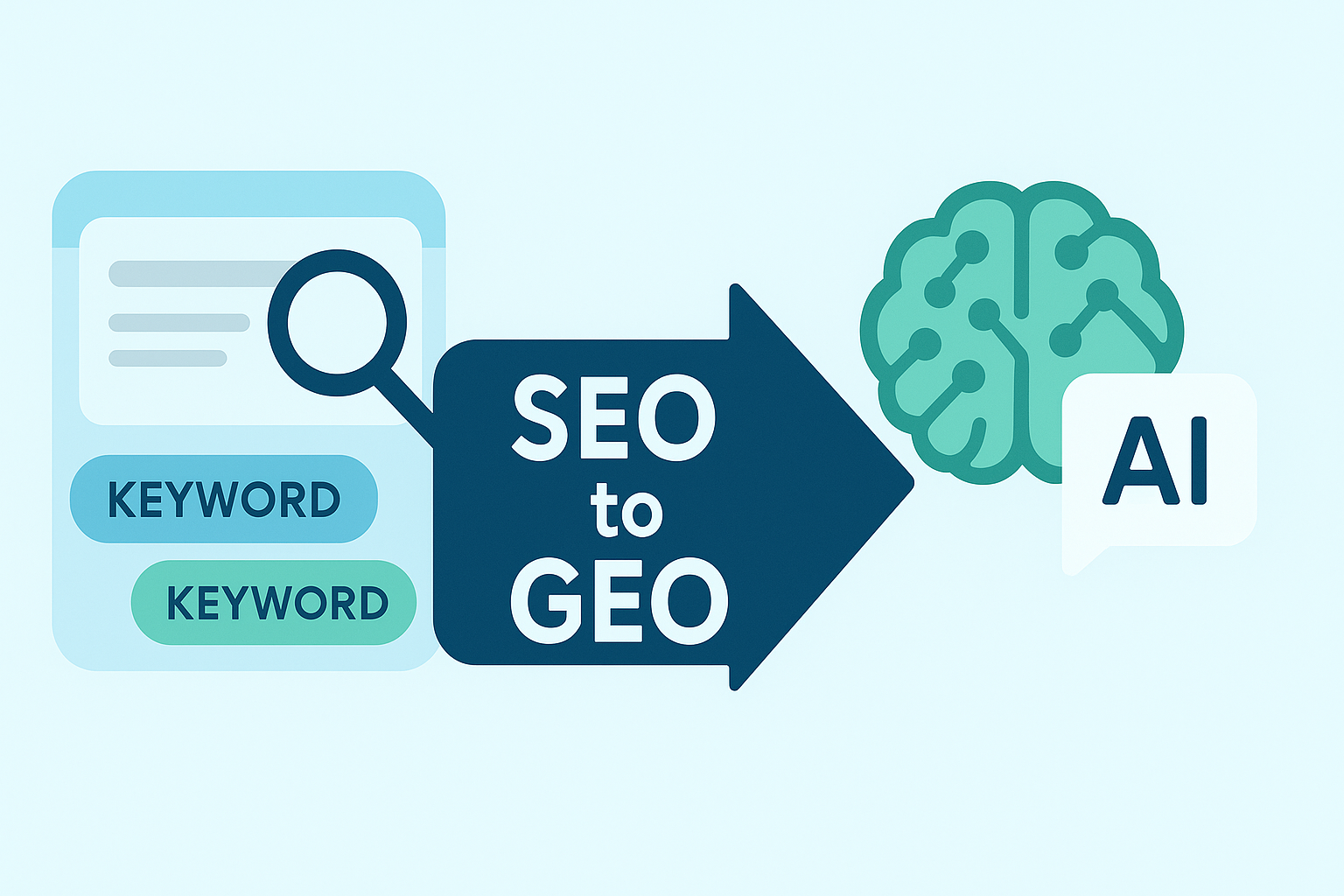Your brand risks falling behind in AI search results if you don’t make a few tweaks to your SEO program. Here’s how you can optimize for LLM-powered AI search engines like ChatGPT, Perplexity, Claude, etc.
Things to know before we talk tactics:
- SEO isn’t disappearing, it’s evolving. If your customers are searching for information, there will be a surface to optimize.
- LLMs learn about brands similarly to typical search engines: They analyze text on websites, articles, forums, news sources, and social media platforms.
- LLMs don’t have access to information before their training cutoff dates. If you ask them about something new they will look it up on a search engine (e.g. Bing) the same way you would and tell you what they found.
OK, here’s a list of legacy SEO tactics versus updated approaches for GEO.
Link Building
Legacy SEO: Backlinks are very important third-party trust indicators. Digital PR, branded mentions, and nofollow links considered secondary “nice-to-have.”
New GEO Approach:
Backlinks remain relevant, but digital PR, branded mentions, and nofollow links gain significance. LLMs assess brand visibility through mentions across diverse sources. Broader web presence = better shot at getting included in LLM-generated responses.
User-Generated Content (UGC)
Legacy SEO:
UGC leveraged for “parasite SEO,” tapping into domain authority of platforms like Reddit to rank indirectly and gain clicks. Reviews primarily influential via structured data snippets (rich snippets, star ratings) to boost CTR in SERPs.
New GEO Approach:
UGC now directly educates LLMs about your brand. Encourage high-quality, informative discussions and reviews on platforms LLMs frequently scrape, including forums, social media, and review sites. Reviews and user feedback shapes LLM perceptions more directly than in legacy SEO.
Keyword Optimization
Legacy SEO:
Focus on developing content to exactly match search intent with target keywords and variants.
New GEO Approach:
Optimize content for complete, clearly articulated answers to common user questions. LLM-driven AI can make better use of thorough, conversational content as opposed to direct, educational content.
Content Structure
Legacy SEO:
Emphasize clear content structure (headings, subheadings, formatting) for user experience. Bullet points, concise summaries, and definitive statements help users accurately parse and reproduce information in AI-generated answers.
New GEO Approach:
No difference.
Content Freshness and Frequency
Legacy SEO:
Fresh content valued mostly for breaking news, trending topics, or competitive keyword rankings. Regular updates beneficial but not always mandatory. Publishing often was required to build up a large, authoritative content library.
New GEO Approach:
Unclear. LLMs don’t currently train very often (ChatGPT’s newest model’s training data is a year old). There is an argument for publishing at scale to ensure LLMs learn from as many of your documents as possible. LLMs also integrate up-to-date search results into responses, so regular content updates may keep brands relevant in ongoing conversations.
The future of AI search
If I had OpenAI’s first mover advantage, I would be trying to eat Google’s lunch as fast as possible. I’m not sure how quickly they might roll ads into ChatGPT, or whether they are working on more SERP-like experiences similar to Google’s excellent ecommerce product Google Shopping. To compete with Google in search they might have to become more Google-like, further validating legacy SEO approaches.

I run a boutique SEO consulting business in San Francisco, CA. I like to play golf, write a little bit, and argue with my friends.
